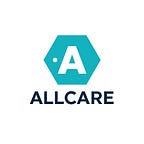Inaccessibility of Benefits for Freelancers
By Mikky Guiao
The number of freelancers are drastically increasing in the gig economy, but is access to benefits increasing along with it? In an economy characterized by perks such as flexible hours, ability to earn side income, and convenience due to automation, many workers are jumping at the opportunity to make money on their own terms. In fact, in a 2017 study released by Upwork and Freelancers Union, more than half of the workforce are expected to be composed of freelancers by 2027. The total addressable market for the freelancer and gig economy is now at $1.5 Trillion globally and growing and technological advancements played a huge part in automating processes.
While many of these perks sound appealing, choosing to become a freelancer comes with its fair share of challenges, one of the biggest of which is the lack of access to traditional employee benefits. Through a survey we’ve conducted consisting of freelancers from the Philippines, Bangladesh, Indonesia, and India (Asian countries which have high freelancer populations), we found out that 96% from the group who answered the survey preferred to be compensated with a mix of salary and benefits, while 87% from the group are willing to set aside budget from their freelance earnings to invest in benefits if only their budget would allow it. However, although a clear majority from the group is interested in benefits, only 9% of the group currently have benefits. 48% from this same group cited the high price of benefits to be their main hindrance to avail of a benefits package, while 22% of the group feel like they lack the knowledge to know which benefits to avail and how.
According to the 2018 Global Human Capital Trends report, actively integrating overall wellness programs (which includes physical, mental, emotional and spiritual health) as an employee benefit, improves bottom line results. The study also shows that driven by the always-on nature of digital business, more than 40% of all workers face high stress in their jobs which negatively affects their productivity, health and family stability. Companies recognize the front and center role that these benefits play to ensure high-performance from workers. Even then, freelancers struggle to get access to similar quality benefits for a couple of reasons:
- Rapid growth rate of the gig economy. The problem of inaccessibility of benefits for freelancers is not a new one. In fact, it is becoming a bigger one because of the sheer number of workers now participating in this new way of work. What’s more, the rest of the world is still at its infancy in understanding how to maximize value in this space. This fast widening gap between the number of freelancers and benefits solutions is causing a huge vacuum that only drills down the fact that freelancers suffer from lack of access to benefits.
- Lack of employer support. Many if not all companies hire freelancers, especially for project-based roles, for the very reason that they can cut costs on long term expenses such as employee benefits. Many employers in both small and large organizations also stand by the idea that job security and access to benefits is an inherent problem in the freelancing industry. Those that choose to freelance should expect that the benefits such as flexibility and income potential come at the cost of financial stability and inaccessibility to safety nets such as insurance.
- Lack of businesses that provide customizable benefits for freelancers. According to the Workforce of the Future Survey (2016), 60% of total surveyed employers report that their companies use freelance workers and 57% of those who employ contractual employees expecting to employ even more in the future. Lastly, a whopping 70% majority of employers forecast that many more organizations will follow suit to adapt to and reap the benefits of the fast growing gig-economy.
Given these statistics and wide-spread beliefs among companies, there is a gap in the benefits provision industry that businesses can fill. The idea of affordable and customizable benefits is not new and there are many applicable frameworks, studies and underutilized plans that could address concerns in an economy that is founded on a connective way of work.
One of the more relevant questions business leaders can ask themselves is how they can adapt to this new industry and still add tremendous value to their companies. A great first step would be to truly understand how benefits affect worker productivity, overall wellness and health, and the role this will inevitably play in the gig economy. A step further than that would be to join discussions with experts that are on the forefront of this change and paving the way for an inclusive benefits industry.
We in ALLCARE believe that access to benefits should not be contingent to the type of work or career you choose. Through blockchain technology and the expertise the team has developed through years of working in the benefits space, we want to work on a future wherein benefits is inclusive for all, but we can’t do it alone.
This is new paradigm for us, and we can use all the help and insights we can get from the fields of benefits, insurance, human resources, freelancing, and blockchain. If you want to be part of the revolution to democratize benefits, join our Telegram community and learn more by visiting our website: https://allcare.io/! You can also email us at hello@allcare.io
